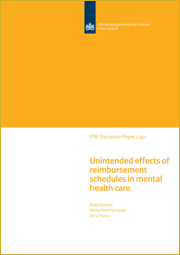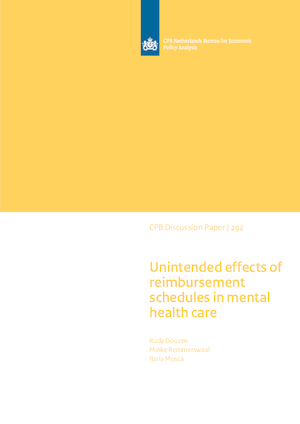November 6, 2014
Unintended effects of reimbursement schedules in mental health care
We evaluate the introduction of a reimbursement schedule for self-employed mental health care providers in the Netherlands in 2008. The reimbursement schedule follows a discontinuous discrete step function ―once the provider has passed a treatment duration threshold the fee is flat until a next threshold is reached.

We use administrative mental health care data of the total Dutch population from 2008 to 2010. We find an efficiency effect: on the flat part of the fee schedule providers prolong treatment only if marginal benefits to patients outweigh marginal costs. We estimate a reduction in treatment duration by 2 to 6% and lower costs by 3 to 5% compared to a control group. However, we also find unintended effects: providers treat patients longer to reach a next threshold and obtain a higher fee. The data shows gaps and bunches in the distribution function of treatment durations, just before and after a threshold. In total, about 11 to 13% of treatments are shifted to over a next threshold, resulting in a cost increase of approximately 7 to 8%.

